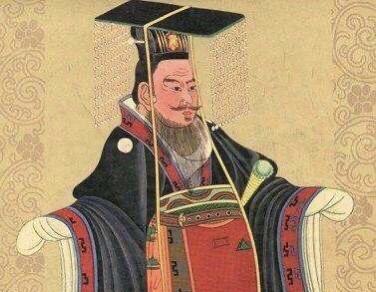
Our country has a long history, and many wise people have made many amazing plans in a specific historical period, and the famous "Thirty-Six Plans" is one of the classics. Some say that these schemes are conspiracies. In fact, some schemes are put into our view today, and they will also make people feel breathtaking, and people say that these schemes are yang schemes. Such as the Tui En Order, the "Tui En Order" during the Han Wu Emperor's period.
The Chronology of Princes and Princes Since the Jianyuan Dynasty of history states: Emperor Wu made an edict on the imperial history: "The princes or those who want to push the sons and daughters of the princes and sons of the princes and princes to be ordered to be on each article are to be given their names." ”
Background of tuien ling: After Qin Shi Huang pacified the world, it was only passed on to the second generation; then the Chu and Han dynasties fought, and Liu Bang established the Western Han Dynasty. At the beginning of the Han Dynasty, the fiefs of the princes were inherited by the eldest son of the concubine alone, and the other descendants of the princes did not have the size of the land. In the early years of Emperor Wu of the Han Dynasty, "the princes or the cities of the city are tens of miles, the place is thousands of miles, the slow is arrogant, it is easy to be adulterous; the urgent is to prevent it from being strong and complicit, and plotting against the capital division." The vast size of the princely states and the possession of armies seriously threatened the centralization of the Han Dynasty.
In this case, Emperor Wu of han "used the master's father's plot to order the princes to divide the land and divide their sons with their private graces, and Han was a custom title, and the rut belonged to Han County." Han has a generous favor, while the princes analyze the weak clouds slightly." Emperor Wu of Han activated this scheme of the lord's father and began to implement the Tuien Order.
Simply put, the content of the Tuien Decree was to let the princes divide their territory among their sons, and the sons in turn to their grandchildren. In this way, after continuous division of fiefs, the land of the princes will become less and less, the power will become more and more dispersed, and the position of the central government will become more and more stable.
For the princes at that time, they all knew that this was an excuse for the emperor to weaken his own strength, ostensibly the emperor's "push grace", but it was also the emperor's order, which must be implemented. What is even more powerful about the Tuien Order is that even if the princes do not support it, the sons who cannot divide the land will oppose it, which will create internal contradictions and make the princes have no energy to oppose the central government. What if the princes had only one son? This was even more unworkable in ancient times, when the princes were all wives and concubines, and the women of the family would compete for their children and support themselves in order to have a future dependency. Moreover, if a son dies unfortunately, the central government will directly take back your fiefdom.
Therefore, this pushing order is a yang plot, which is simply an inexplicable yang plot.
Tuien Ling learned the lesson of the "Rebellion of the Seven Kingdoms" caused by the "Rebellion of the Seven Kingdoms" issued by Chao Erroneously during the Jing Emperor's period, and let the princely states divide their own land, and the smaller the division. How small is it? By the late period of Emperor Wu, "large countries were no more than ten cities, and small countries were only tens of miles."
In the princely states, except for the eldest son who inherited the title, other children could be made marquises, and after the marquis became ordinary people.
You see Liu Xiu, he was the founding emperor of the Eastern Han Dynasty, the ninth grandson of Liu Bang, the ancestor of Han Gao, and a descendant of Liu Fa, the prince of Changsha Ding, the son of Emperor Jing of Han. His ancestors obeyed the principle of "Tui En Ling" and descended from the ranks of marquis to his father Liu Qin's generation, but he was only a minor official like Jiyang County Ling. By the time of Wang Mang's rebellion at the end of the Western Han Dynasty, Liu Xiu had completely become a peasant and a cattle herder. The history books record that when Liu Xiu first went to the battlefield, he still rode an ox to the battlefield, because horses were a scarce resource in the army at that time, so he could only ride an ox to the battlefield.
If you look at Liu Bei again, he was the emperor of Zhongshan Jing, and in the Three Kingdoms period of the Eastern Han Dynasty, he was still the uncle of the current Emperor of the Great Han Dynasty. What is he doing? Weave straw shoes over there. How did Uncle Huang get so miserable that he sold drafting shoes? Just because his direct ancestors were not the eldest son of Concubine, they could not inherit the title of King Jing of Zhongshan, and they were named Hou, and when hou was finished, there was no drama, and after several generations, the fields were also divided, and they had to sell straw shoes to make ends meet.
Lo and behold, this is the tui En Ling, the miracle of the strong and weak branches, which perfectly exploits the selfishness of human nature and becomes an insoluble yang plot for eternity. It is also titled "Tui En", which is simply a great irony.